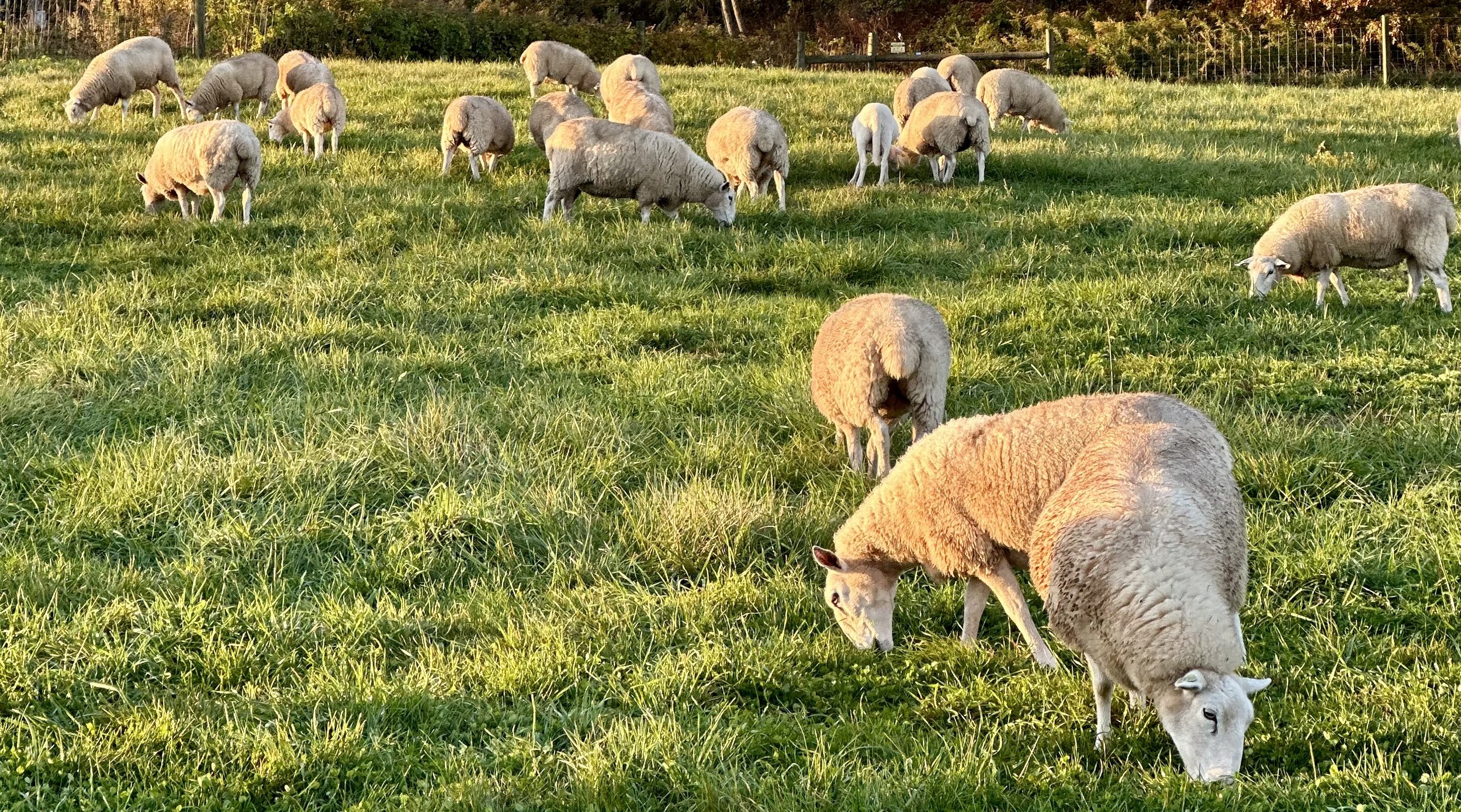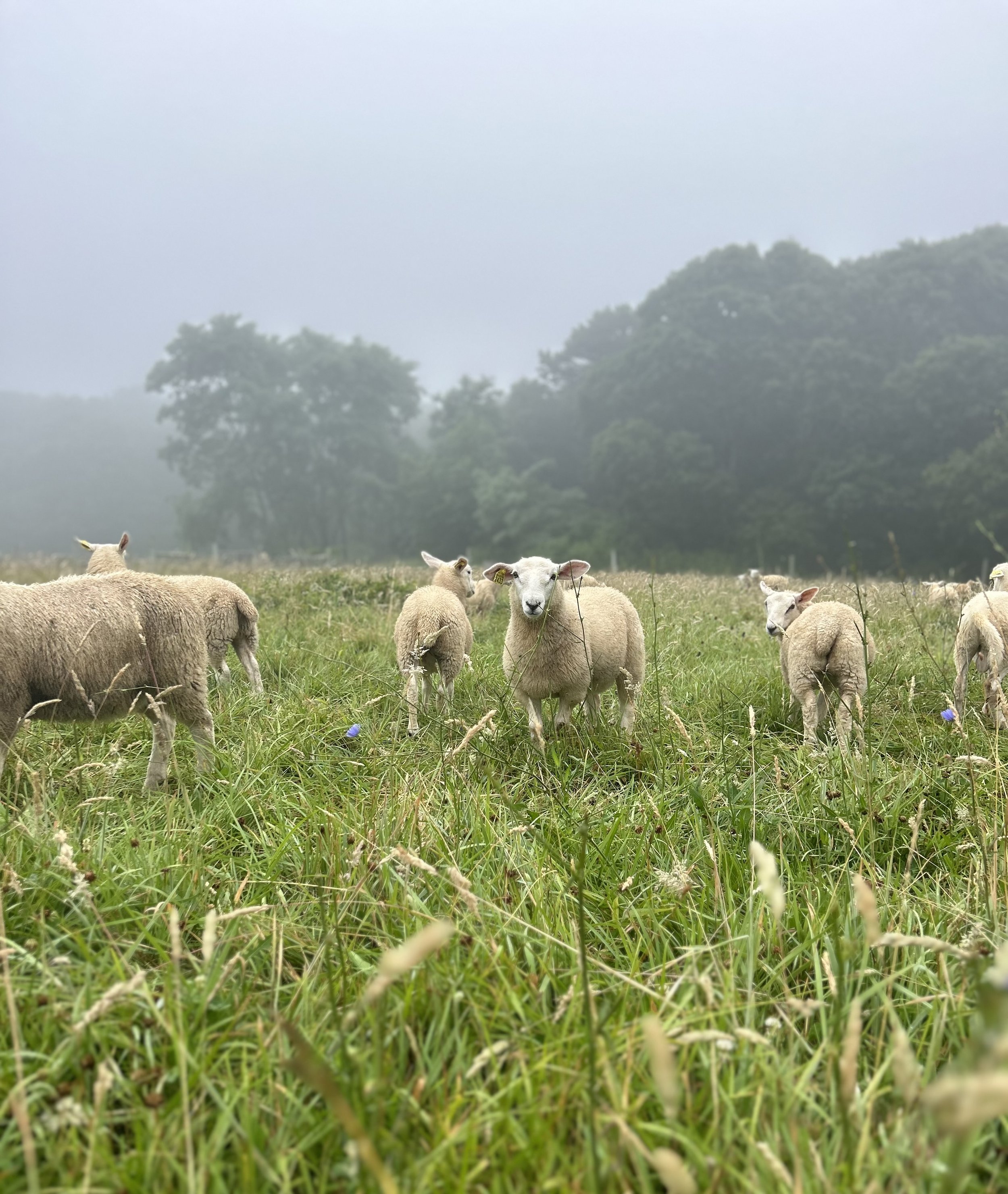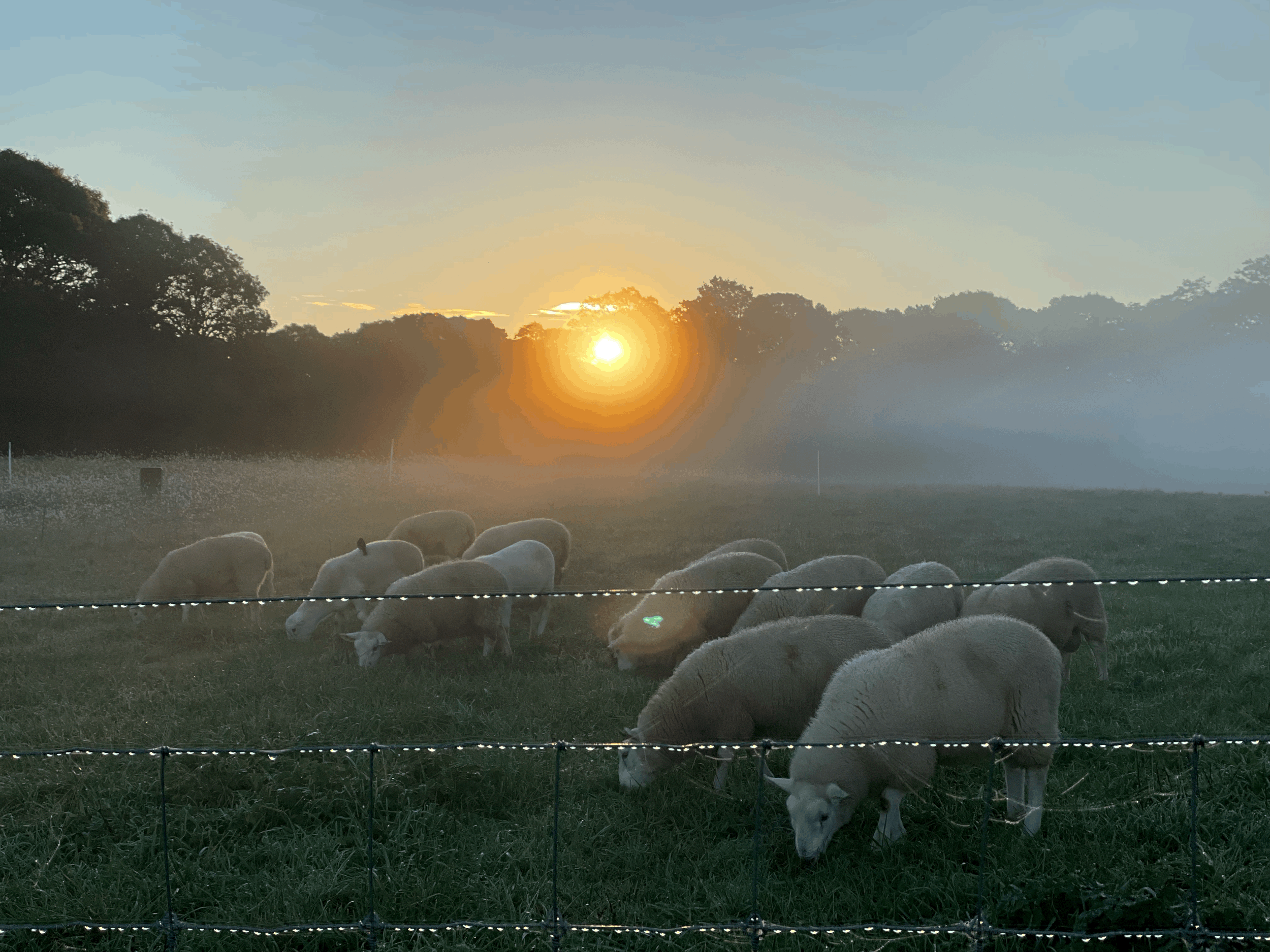
MISSION
We and our sheep are on a pretty big environmental mission. By utilizing a strategy called rotational grazing, our sheep are providing an ecologically friendly approach to maintaining open space and pasture quality. Additionally, this style of grazing encourages the maximum amount of grass root growth which acts to sequester carbon. This allows us to offer 100% pasture-raised meat and wool products that are not only good for you, but good for the environment, too.
In addition to our environmental mission, we also work with local groups to provide outreach programs focusing on seasonal activities at the farm to help educate the public on the historical importance of farming in New England and the role that animal grazing can play in maintaining open spaces.
Finally, we believe that people should know where their food comes from so they can make informed decisions on what they eat. By working with the Conservation Commission and the Town of Falmouth our goal is to develop an inspiring example of how town land can be farmed in a sustainable manner while maintaining public access and educating our community on the importance of local food production.
01.
–
CONSERVATION
Through the simple act of grazing, sheep are constantly cultivating new grass. Proper rotational grazing improves the root base and acts as a climate friendly carbon sink.
02.
–
Education
By cheerfully answering visitor questions and holding outreach programs to educate the community about sustainable farming and how farms work.
03.
–
COMMUNITY
Raising community awareness about conservation, farming & animal husbandry so people can make informed decisions on where their food comes from.
““To forget how to dig the earth and to tend the soil is to forget ourselves.”
Mohandas Gandhi

HISTORY
Peterson Farm is one of the oldest farms on Cape Cod, the land was granted to John Weeks in 1679 and was farmed by the Weeks family for almost 300 years. The Weeks raised cattle and sheep and maintained orchards and cropland. Wool was the primary source of income for most of the farm’s history, so when demand for wool declined in the late 1800s and early 1900s, family members turned to other occupations. The farmhouse was finally abandoned and torn down. The foundation to the barn still exists beside the path to Miles Pond.
We are proud to be able to continue the tradition of farming this land while providing a reminder of Falmouth's rich wool history and also preserving the culture of the working Border Collie.
—
DONATE
